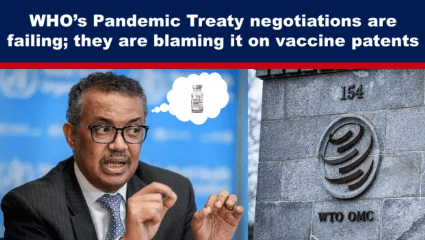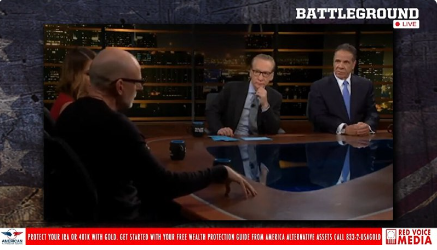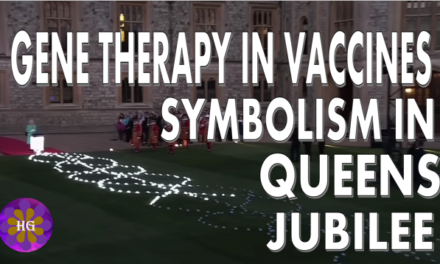Maybe 5% of the negotiations regarding the World Health Organisation’s Pandemic Treaty and amendments to the International Health Regulations (“IHR”) are about a trade agreement. The other 95% are about global control of information, pandemics and medicine through the World Health Organisation (“WHO”), says Dr. Meryl Nass.
In an article published at the end of last month, Nature wrote that for almost a year nations have been negotiating the terms of a Pandemic Treaty and the talks are due to conclude this year, but countries are poles apart on key issues. WHO’s Director-General Tedros Adhanom Ghebreyesus has recently acknowledged that the talks were in trouble, meaning that the deadline might not be met.
“The ideal outcome would be for high- and low-income countries to have the same access to life-saving vaccines, drugs and other tools to combat a global health emergency, at a fair and transparent price,” Nature wrote.
One of the ways Nature suggested this could be achieved was “funders could retain certain intellectual property (IP) rights to be used only when there’s a necessity to develop and distribute products equitably.”
The Nature article lamented that the latest version of the treaty text does not include, for example, the waiver of IP rights. “Some European countries say that the World Trade Organisation (WTO), not the WHO, is the organisation to host discussions relating to IP rights,” Nature explained.
A controversy over IP rights has ensued.
Five days later, on 5 February, Forbes reported that vaccine and drug IP protections are “under attack” as the WTO is considering a proposal this month that would waive IP rights for covid-19 therapeutics and diagnostics. “Doing so would undermine the interests of not just innovative American companies but patients worldwide who depend on them to churn out groundbreaking therapies,” Forbes wrote.
In 2022, the WTO’s member nations agreed to a TRIPS waiver for covid-19 vaccines. The argument was that developing countries lacked easy access to vaccines. They sought the ability to manufacture them cheaply to dispense to their own populations. But they needed the WTO’s member nations to give them permission to ignore the IP protections undergirding those vaccines.
No country has yet taken advantage of this waiver.
Unfortunately, that 2022 vaccine waiver opened the door to scrapping IP rights in other instances. Covid-19 therapeutics and diagnostics are the target this time around.
This multiyear assault on IP rights is troubling. Voiding patents didn’t get patients faster access to covid vaccines. And it won’t do so for covid tests or treatments. But it would have devastating consequences for medical research and development.
This Policy Helped Make Covid Vaccines Possible. It Could Soon Disappear, Forbes, 5 February 2024
Reading between the lines, it seems that the reason for the Pandemic Treaty talks being in trouble is being sold as an “equity” problem that would be solved by a “multiyear assault” on drugs and vaccine IP rights. In short, the reason the Pandemic Treaty negotiations are failing is being portrayed as the inability of developing nations to access cheap vaccines.
In an article published yesterday, Dr. Meryl Nass gives some insight into what is really going on.
Source: https://expose-news.com/2024/02/11/whos-pandemic-treaty-negotiations-are-failing/
Bitchute: https://www.bitchute.com/channel/YBM3rvf5ydDM/
Telegram: https://t.me/Hopegirl587
EMF Protection Products: www.ftwproject.com
QEG Clean Energy Academy: www.cleanenergyacademy.com
Forbidden Tech Book: www.forbiddentech.website













